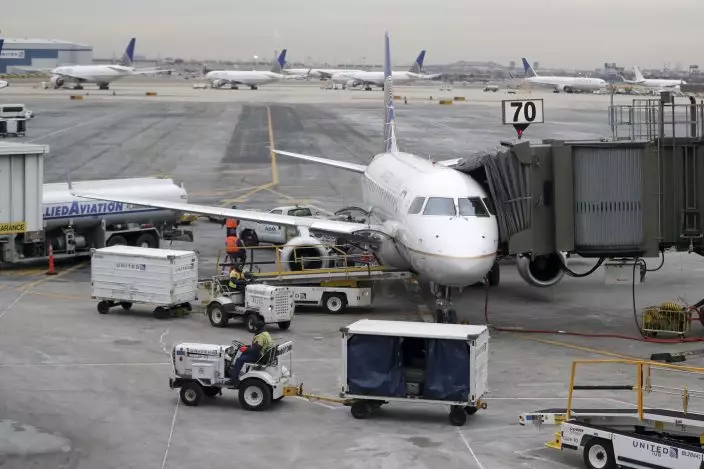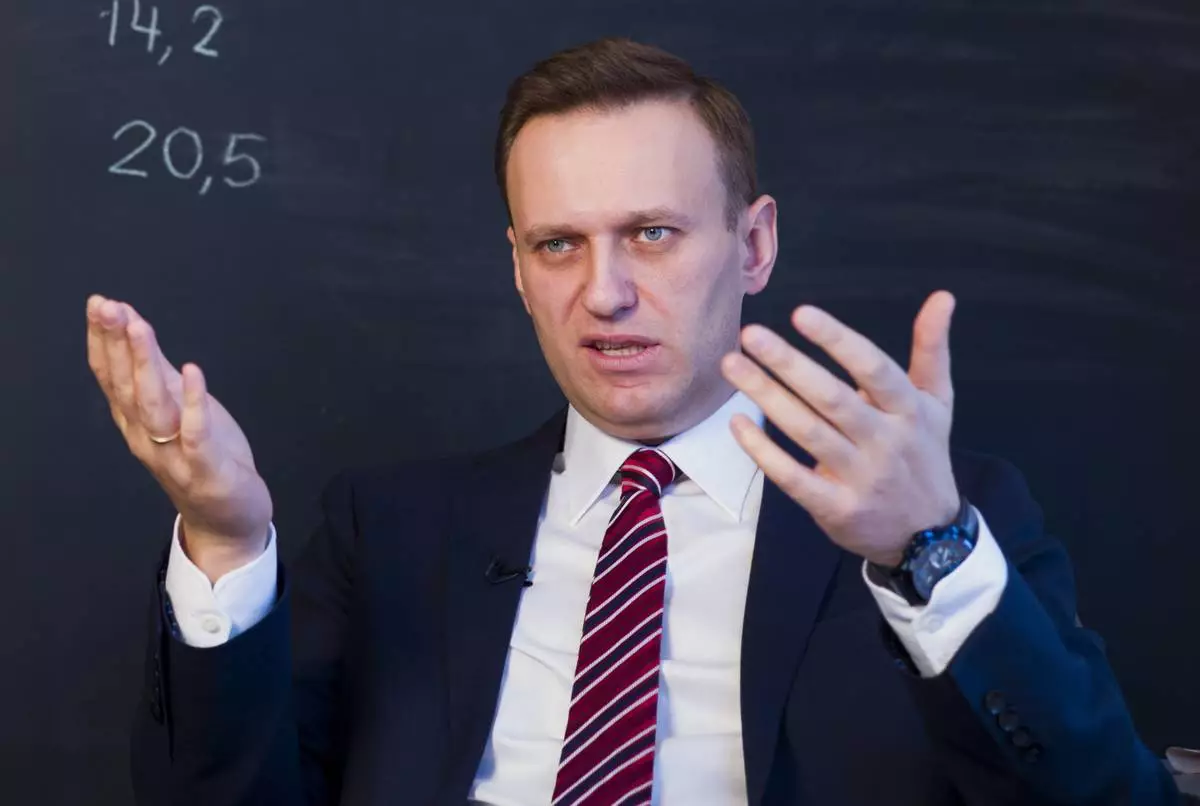United Airlines glided through the first part of summer, as strong travel demand pushed average fares higher, but the grounding of Boeing 737 Max jets will become a bigger challenge in the months ahead.
United said Tuesday that its second-quarter profit soared 54%, to $1.05 billion. The results beat expectations, and United slightly raised its forecast of full-year profit.
The Chicago-based airline, however, faces uncertainty because of the grounding of Boeing 737 Max jets after two deadly accidents.

In this Jan. 23, 2019, photo a United Airlines jet is parked at a gate as luggage handlers pull carts near the terminal at Newark Liberty International Airport in Newark, N.J. United Airlines reports financial results on Tuesday, July 16. (AP PhotoJulio Cortez)
United is dipping into the used-plane market to bolster its fleet. The airline said that it recently signed an agreement to buy 19 used Boeing 737-700 jets, which will start showing up in December.
The airline counted on the Max becoming a bigger part of its fleet, growing from 14 planes to 30 by the end of September, and 28 more of them next year. That plan is now in jeopardy, as Boeing has halted Max deliveries with no clear idea yet when the plane will be certified to fly again.
The missing planes will leave a huge gap in United's schedule and cut into the airline's revenue. United has already canceled more than 8,000 flights by taking the Max out of its schedule through Nov. 3, and the number will grow the longer the planes remain grounded.
Without those planes, Boeing is slowing down its expansion plans. The airline had expected to boost passenger-carrying capacity by 4% to 6% this year, but on Tuesday it said it will grow more modestly, between 3% and 4%.
The slower growth in capacity, combined with strong demand, means that airline pricing power "remains quite strong," said Cowen airline analyst Helane Becker.
United's slower growth also reflects the airline's decision earlier this year to suspend flights between New York and New Delhi after Pakistan closed its airspace to civilian flights because of rising tension with India. Pakistan lifted restrictions Monday, and a United spokesman said the airline is considering resuming the flights to India in the coming weeks.
The second-quarter profit was up from $683 million a year earlier.
United said that excluding special gains and charges, it earned $4.21 per share in the quarter. The average estimate among 16 analysts surveyed by Zacks Investment Research was $4.07 per share.
United does not publish average fares, but a stand-in figure — revenue per seat for each mile flown — rose 2.5% over last year's second quarter. That was at the top end of United's guidance to investors and helped propel total revenue 6% to $11.4 billion, slightly higher than analysts expected.
The nation's third-largest airline by revenue raised the lower end of its forecast range for full-year earnings to between $10.50 and $12 per share. It previously forecast $10 to $12 per share.
United executives are scheduled to talk to investors about the results on Wednesday.
Before the financial report, shares of United Airlines Holdings Inc. gained $2.60, or 2.9%, to close at $93.92. They were up less than 1% in extended trading, to $94.25.










